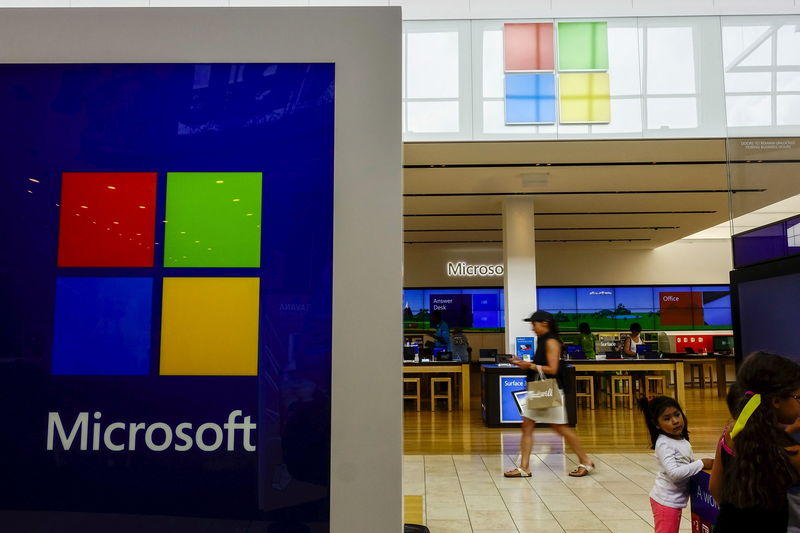Investment bank Jefferies believes that its top AI pick, Microsoft (NASDAQ:MSFT), is "going for AI gold, not silver," according to a note from its analysts following several meetings with the company in London.
During those discussions, key takeaways highlighted the ongoing capital expenditure (Capex) ramp, the strong performance of Azure, and the promising trajectory of the M365 Copilot initiative, Jefferies noted.
To be more specific, the firm’s analysts said that Microsoft is set to continue its significant Capex ramp in FY25, driven by confidence in AI demand, which also supports its cloud and Software as a Service (SaaS) businesses.
Despite substantial Capex, Microsoft compares this investment to its Cloud business, where revenue growth eventually outpaced Capex once scale was achieved, leading to efficiencies.
“MSFT noted that it is always capable of throttling down Capex, just as it had done several times with Cloud, but reaffirmed that this is not an issue today given the abundant demand they are seeing,” Jefferies analysts said.
“We expect Capex including fin leases to grow ~65% y/y in FY24 to $52.65B,” they added.
Moreover, analysts noted that AI contributed seven percentage points to Microsoft Azure’s growth in the fiscal Q3. However, the actual influence is even broader, with over 50% of Azure AI customers leveraging Microsoft's data and analytics tools. This, according to Jefferies, suggests that “the impact of AI on Azure growth and the broader Microsoft platform is well above the 7 points of Azure noted.”
Core Azure trends remain healthy as well, although Microsoft is looking for several quarters of sustained strength before committing to an improved environment. Analysts pointed out that strong growth in core Cloud services, not just AI, justifies the ongoing Capex ramp.
The M365 Copilot initiative is also gaining traction. Since becoming widely available in mid-January 2024, M365 Copilot has seen solid adoption, a trend that Microsoft expects will accelerate as the partner ecosystem develops and organizations become more comfortable with data governance.
“If we use E5 as a case study, it should take 3-4 quarters for M365 Copilot to have an impact on ARPU which likely make O365 tailwinds a FY25 story,” Jefferies commented.
Impressively, Microsoft has also managed to maintain operating leverage despite its substantial AI investments. Non-GAAP operating margins have increased by 3.3% over the past two years, reaching 44.6% in F3Q24. That growth has been partially driven by the extended life of servers, analysts said.
Although Microsoft didn’t comment on other companies’ AI announcements, it remains enthusiastic about its partnership with ChatGPT maker OpenAI to provide cloud services, according to Jefferies.
“We note that MSFT is likely positioned to benefit from this deal given its profit-sharing agreement with OpenAI and position as OpenAI's cloud provider,” it said.
